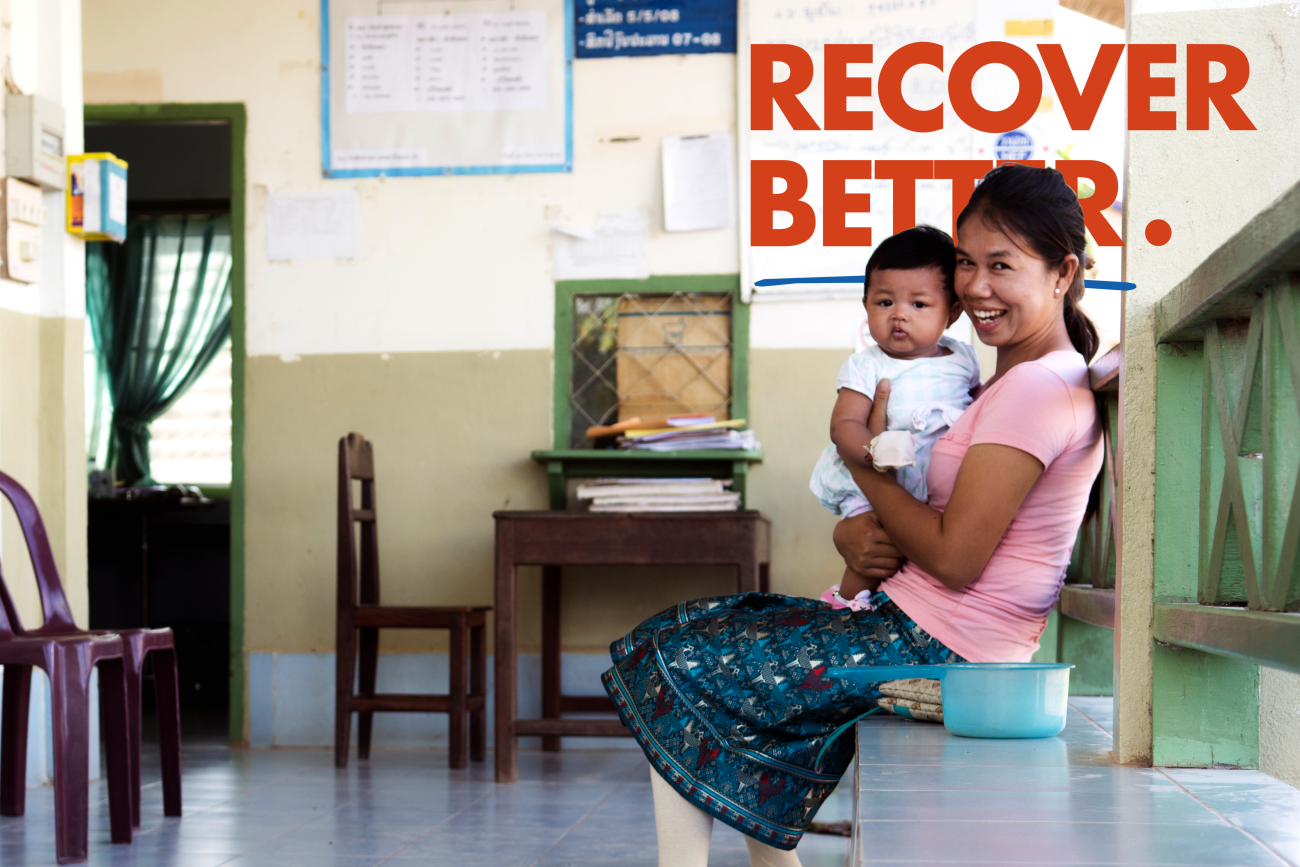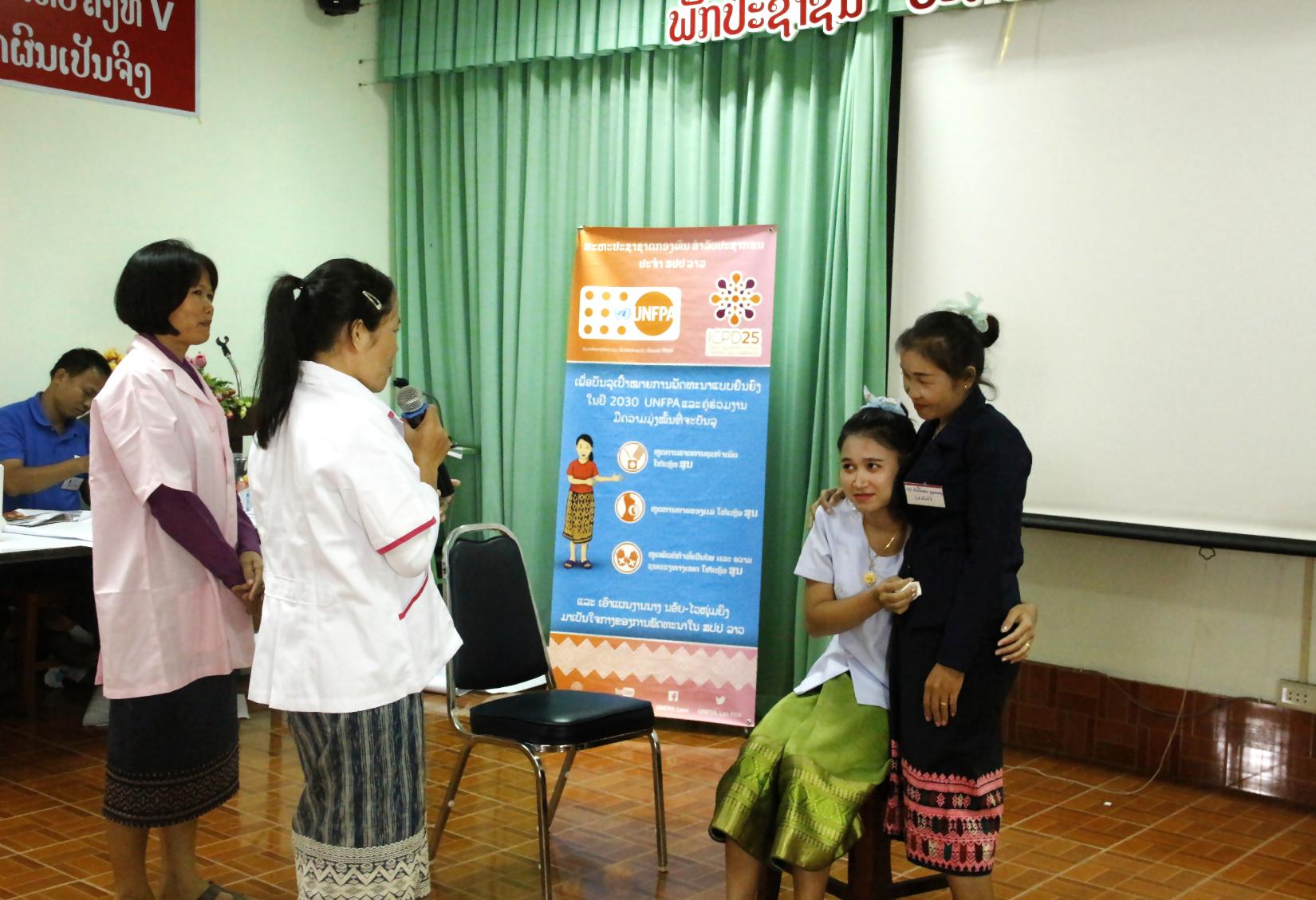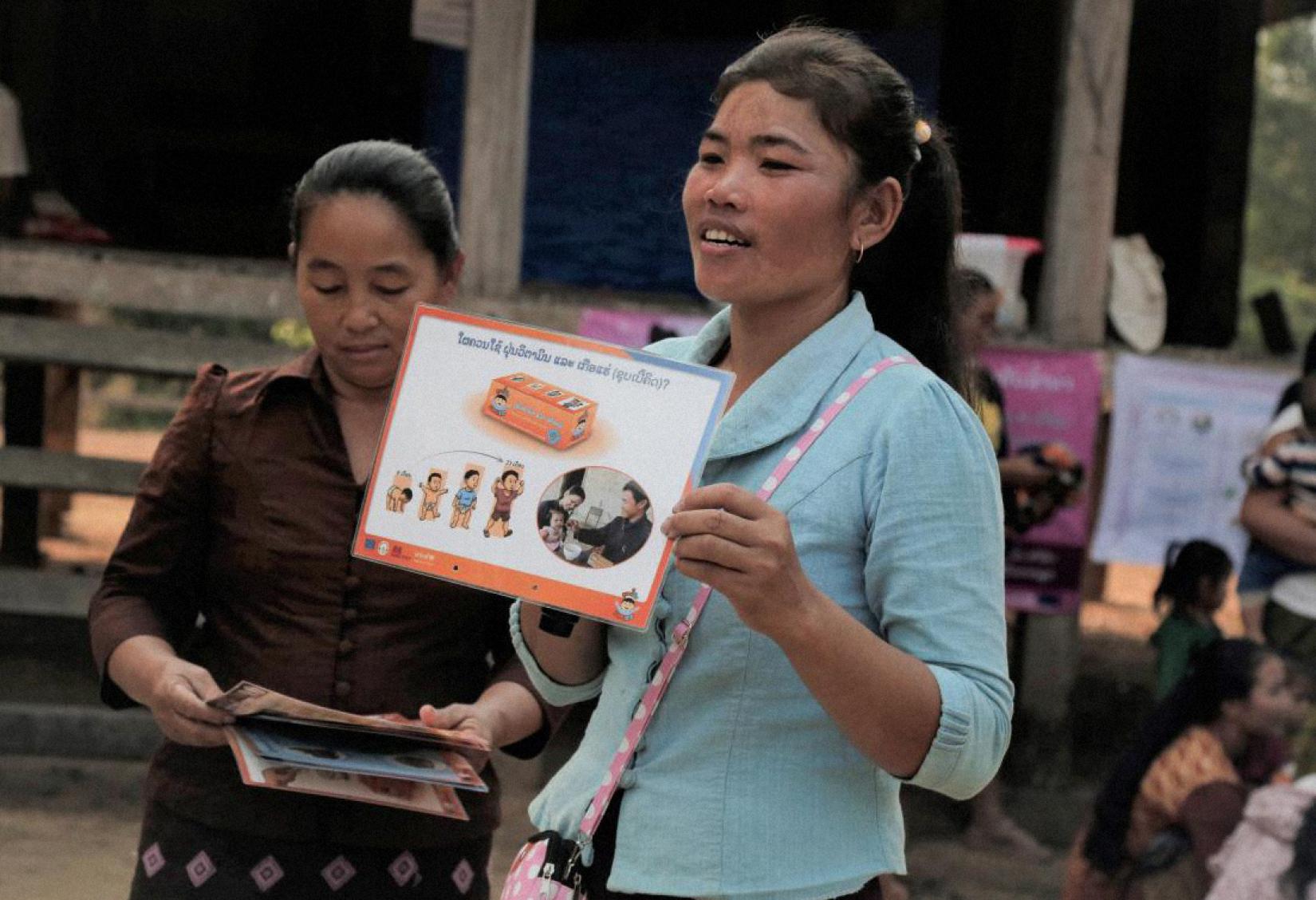Safeguarding the Health and Rights of Women, Youth and Children in Times of COVID-19

A story placing people at the center of 2020 Human Rights Day emphasizing the global theme of “Recover Better – Stand Up for Human Rights”
Note: This is a fictional story that combines the real-life experiences of several women. Names and geographical details have been changed.
“Do you want to know my story? Well, it’s the story of a meeting that changed my life, helped me feel better, and made incredible people cross my path; who listened and supported me”. Those were the words of Anong, a young patient visiting a health facility in Savannakhet where UNICEF and UNFPA are supporting the Savannakhet provincial health office to run programmes for the protection of reproductive health and rights of women and girls.
In the UN Joint Programme for health, WHO, UNFPA, UNICEF, and the Embassy of Luxembourg partner with the Ministry of Health to improve the health of women, newborns, children, and adolescents in Lao PDR by supporting the implementation of the National Reproductive, Maternal, Newborn and Child Health Strategy and Action Plan 2016-2025.
Anong is 20 years old, she suffered serious health issues and anxiety due to the COVID-19 crisis. “I was living with a man and things were not easy. My partner was forcing me to have intimate relations. After the lockdown, he was seeing someone else while being with me. I was silent and accepted my situation. I was not protected and contracted a Sexually transmitted infection.”
Anong felt unwell and was in despair. She knew that the health system was overloaded, health providers and resources were oriented to services, particularly COVID-19 related. Disruptions of the global supply chains were undermining the sexual and reproductive rights of young people especially the vulnerable ones such as those living in remote areas, with low education levels and from the lesbian, gay, bisexual, and transgender communities, aggravated with silence and violence at home for fragile ones like Anong.
The UN Joint Programme also supports health outreach services to women and children living in remote and hard-to-reach areas. Families living in remote areas may not be able to reach the nearest health centre so easily where the health of their children can be monitored, and receive essential services such as immunization, growth monitoring, and micronutrient supplements on regular basis. Outreach teams take these services to remote villages every 3 months where women receive family planning advice and contraceptives, pregnant women have ante-natal care checks, children are vaccinated, they have their weight and height measured and growth tracked, and mothers are shown how to prepare nutritious meals for their children.
The United Nations Joint Programme aims to support the government services cover a broad spectrum of rights and serve to promote and protect human rights under Lao PDR commitments to the Universal Declaration of Human Rights, Convention on the Elimination of all Forms of Discrimination Against Women, Committee of the Rights of a Child and International Conference on Population and Development Programme of Action.

“I found a flyer. It was distributed in my area. It says there are government services supported by the UN for women and children, respecting our needs, protection, and privacy. I was curious so I went to the Clinic mentioned and my life changed. I was received in a special room. The health provider was so nice to me, she reassured me, listened to me and gave me the treatment, and asked me to come back again. I also got a number to call anytime if I don’t feel good. Since that day, I found a new family, I go often, to seek information, to ask for advice. You can’t imagine the impact of such support to young women like me, who live in fear of judgment from society. I hope these programmes are implemented in many places”, says Anong.
Under the Joint Programme, UNFPA strengthens the capacities of health providers to deliver adolescents and youth-friendly services based on international standards, accompanied with handbooks to improve the quality of services for youth and women. UNICEF and UNFPA work closely with the local authorities, NGOs, CSOs, and engage local communities, including rural women and youth, in the response and recovery efforts. Engaging the community women youth and children is one of the human rights principles so that services can be responsive and protect the dignity and privacy of clients. The Joint Programme delivers information on the existing services to encourage youth and women to avail the health and psychosocial support and counselling services.
“I have seen a lot of changes in the children of Dongbang,” Konghom says, a volunteer from Lao Women’s Union leading the outreach activities in Dongbang Village of Savannakhet Province. “Before I saw a lot of children who were not eating well and suffering from diarrhea but now the children of the village are generally growing well with less illnesses.”

Leaving no one behind is at the center of the UN efforts in Lao PDR in support of the government priorities. The UPR recommendations related to maternal health, child mortality, and sexual health have been accepted by the Lao government. National ownership of these challenges has been high, Lao PDR was one of the few countries that realized the Millennium Development Goal on maternal health. This continued commitment towards delivering the rights of women and girls to access maternal and newborn care; sexual and reproductive health and rights through access to information and education; effective referral pathways; and contraception, is essential to meeting the national targets.
Davanah is six months pregnant and has been attending outreach sessions led by Konghom regularly. With the information she has received, she knows how to take good care of herself and give her baby the best start in life. She is confident that if she follows the same advice and receives similar support, her new pregnancy will be safe and healthy.
“I will follow the advice from the health workers and will exclusively breastfeed for the first six months and then introduce other foods when my baby is a bit older.”
The United Nations programmes work towards ensuring continuity of services and their availability and accessibility by everyone without discrimination or exclusion. This is reflected in the UN Lao PDR Socio-Economic Response Plan.
---
UNFPA, the UN sexual and reproductive health agency, works in over 150 countries, including Lao PDR, to achieve zero maternal deaths, zero unmet need for family planning, and zero gender-based violence and harmful practices towards women and girls.
- For more information, please contact: Ms. Siriphone Sakulku, UNFPA SRH Programme Coordinator, ssakulku@unfpa.org.
UNICEF works in some of the world’s toughest places to reach the world’s most disadvantaged children. Across 190 countries and territories, we work for every child, everywhere, to build a better world for everyone.
- For more information about UNICEF and its work for children, visit www.unicef.org.
- Follow UNICEF on Twitter and Facebook.





